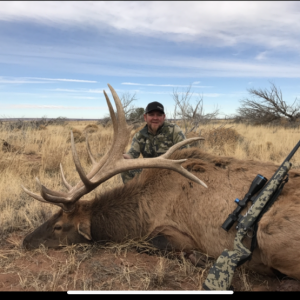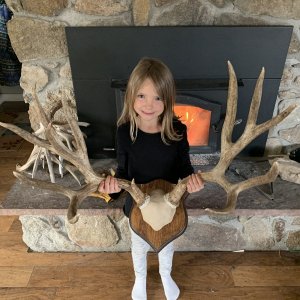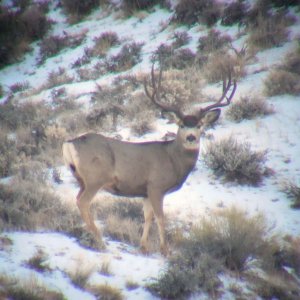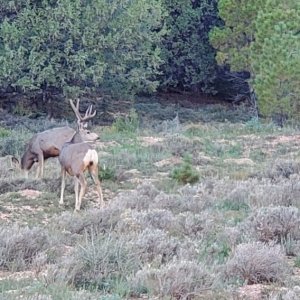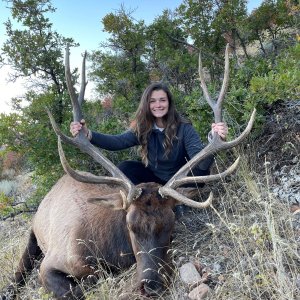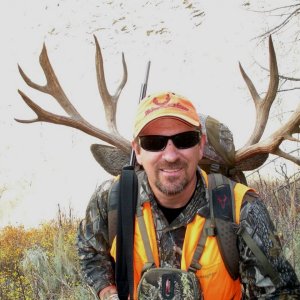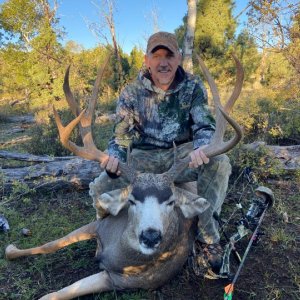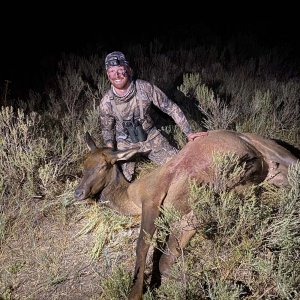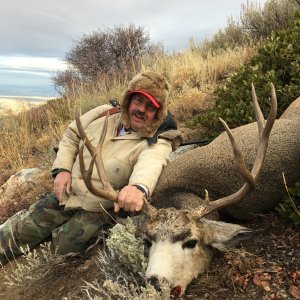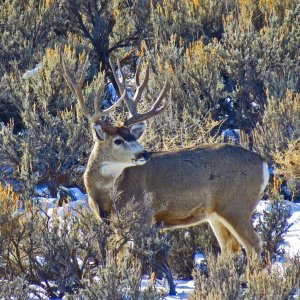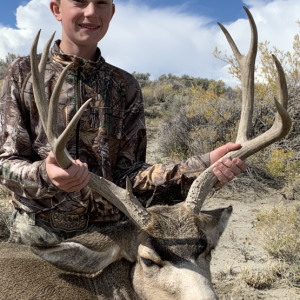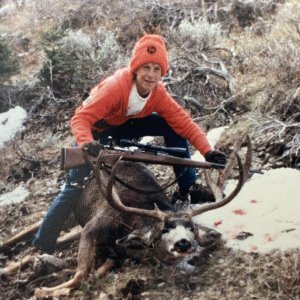Mafojani Safaris
Member
- Messages
- 37
As students filled the classroom, eager to take their hunter education course, memories came to mind when I took the same class. The year was 1995, and as a young Lieutenant stationed at Ft. Bragg, NC, I had no idea that I would be a hunter-education instructor teaching classes of my own one day. However, after 35 years of hunting and having taught or introduced hundreds of people to hunting, the one thing that has become evident during this time is that we as hunters evolve and go through several stages during our lifetime.
According to most hunter education manuals, there are five distinct stages of a hunter. The first stage is the "Shooting Stage." During this stage, the hunter's sole mission is to shoot something. After all, that is what hunting is all about, right? After years of anticipation, when we finally get into the woods to go hunting, it's all about shooting something, anything, to show that we were successful. It doesn't matter if it is a button buck, doe, or coot; success is determined by whether an animal was shot during the hunt. The mantras of "If it's brown," it's down", or "If it flies, it dies" applies to most hunters during this stage. Success is determined by whether an animal is shot on the hunt.
After a few successful seasons or no longer finding satisfaction in just shooting animals, a hunter will usually migrate to the "Limiting Out" stage. During this stage, the hunter's focus and measure of success are getting their limit. Six ducks, 12 deer, three pheasants, it doesn't matter. A limit is a limit, and this is what hunters are seeking during this stage. One can often identify a hunter in this stage when they are asked, "How was the hunt?" and their response is, "I got my limit." Then we have the "Trophy Stage," where hunters seek to harvest mature, quality animals that often sport large spurs, beards, skulls, or antlers. No longer is it about shooting an animal to say you got one or using a limit to define whether a hunt was successful. The focus of the hunt during this stage is to bag an old tom with a paintbrush for a beard or a bighorn sheep with full curl horns, characteristics which show that an animal is well into its prime. Harvesting an animal that makes it into the record books, a trophy, also garners bragging rights and kudos from friends and fellow hunters alike. While some hunters hibernate in this stage and define success by how many trophy animals, they harvest each season or only hunt trophy animals, other hunters make the transition to the fourth stage, the "Method Stage." Hunters with a few years of experience under their belt are usually found in this stage where the focus is now on using different harvest methods such as bow, muzzleloader, spear, or handgun to harvest an animal. It is common for many seasoned hunters to switch from rifle hunting to bow hunting because bowhunting offers a more significant challenge and requires more skill. Some hunters like to take it a step further and use knives or spears to harvest game, as this type of primitive hunting reconnects us with our primal roots and offers an exhilarating experience.
For most, the fifth and final stage is the "Sportsman Stage," where many hunters find themselves at the peak, or sometimes at the end of their hunting years. During the Sportsman Stage, the focus of the hunt is not the hunt itself, but in the enjoyment of the pursuit, the camaraderie and fellowship among other hunters, the sound of the hounds on a track, or watching a retriever burst from cover to retrieve a downed pintail duck. By this stage in a hunters' life, they have moved past the shooting stage, the limiting out stage, the trophy stage, and the method stage. During the Sportsman stage, a hunter could care less about harvesting an animal on the hunt. Some will even tell you that they sometimes don't even carry a gun. They are there for the fellowship. During this stage, we often see older hunters giving way to newer hunters, letting newer hunters take on greater responsibilities on the hunt, and simply ensuring that traditions are being upheld. While the Sportsman Stage is commonly acknowledged as the final stage in the evolution of a hunter, there is a sixth and underrepresented stage of a hunter, the "Giving Back" stage. Although many states omit this stage in their hunter education manuals, Texas highlights this critical and culminating hunter stage.
For most hunters, including the author, the Giving Back stage epitomizes what it is to be a hunter and what is expected of one once one completes their evolution. While the Sportsman Stage is admirable, the Giving Back stage takes hunting to an entirely different level and ensures that hunting will continue for generations to come. During this stage, the focus is not on any of the previous steps; instead, the focus is on passing knowledge and hunting skills to others. It is about being a responsible and ethical hunter, working with wildlife officials and landowners, portraying hunting in a positive image, and ensuring that the tradition of hunting continues.
As a lifelong hunter and ambassador of the tradition, I consider the Giving Back stage to be a crucial stage of a hunter's life, and it is here where I spend most of my energy and time. While it is nice to harvest animals, experiment with different methods of harvest, and get a trophy or two from time to time, my genuine enjoyment comes from passing knowledge and inspiration on to others. I go out of my way to introduce more minorities to the sport of hunting because I realized the lack of attention given to minority outdoors people. My skills as a hunter education instructor and former U.S Army Officer allow me to reach my target audience with ease. Because I am at the Giving Back stage, I can reach a perspective hunter wherever they happen to be on their path to becoming a hunter. Unlike many hunter education instructors or outdoor influencers, I understand the importance of introducing adults to hunting versus introducing children to hunting. Most of my efforts go to introducing parents, uncles, aunts, and grandparents to hunting. The oldest person I introduced to hunting was 63 years old, but there's also a 70-year-old waiting for me to take him on his first hunt as soon as time allows. I have found that many parents want to learn how to hunt to pass the skills down to their children. As such, I have introduced countless adults to the tradition of hunting. Giving back is much like sowing seeds, and it is rewarding to introduce someone to hunting and see them blossom into an ethical and successful hunter.
There is no set timeline for when a hunter should transition through these stages. Still, some, such as Varria Braxton of Baltimore, MD, become hunter education instructors. Varria, a Pro Staff member with N.onT.ypical Outdoorsman TV said: "being a school teacher, I have a natural inclination to teach others. I didn't start hunting until the age of 31, but several years later, I had a 35-year-old cousin who wanted to hunt, and she was the first person I began teaching how to hunt. That experience inspired me to mentor more people." Braxton added that "working with N.onT.ypical Outdoorsman has also interested me in mentoring and introducing people to hunting. Being around people who look like you make the experience more enjoyable when learning to hunt. I was an adult when I learned how to hunt, and it is important to introduce adults to hunting because adults have resources and access to kids. More of an investment is made when you teach adults how to hunt." said the 38-year-old who is one step away from becoming a certified Maryland hunter education instructor."
Sadly, some hunters will never make it out of the Shooting Stage as spikes, button bucks, jakes, and hens are all fair game in the eyes of a shooter. Some hunters will never reach the Giving Back stage and have no desire to introduce others to the tradition. However, hunters need to evolve in their pursuit of the hunt at the end of the day. These six stages will increase one's knowledge of what they are likely to experience over different stages of their life and what the goal should be. After all, future generations of hunters depend on us to portray hunting positively and ensure that the tradition of hunting continues. We never know how or to what extent we will evolve as hunters. Keep hunting!
By Morris, E. (2022). Adapted from The Hunting Wire, January 4, 2022.
Eric Morris is the Producer and Host of N.onT.ypical Outdoorsman TV and Founder of N.onT.ypical Outdoorsman, an organization that directly creates more diversity and inclusion among America's hunters. He is a Hunter Education Instructor and is a leader in recruiting minority hunters from across the nation. When he is not producing episodes or hosting hunts, Eric can be found consulting conservation agencies to increase minority participation in hunting and outdoor events.

